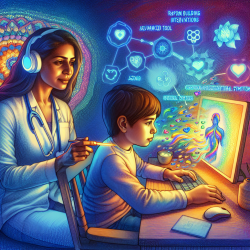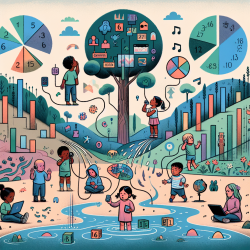In recent years, the landscape of therapy services has undergone a significant transformation, with online therapy emerging as a viable and effective alternative to traditional in-person sessions. For occupational therapists, this shift presents both challenges and opportunities. In this blog, we delve into the latest research to explore the efficacy, benefits, and considerations of online therapy, with a particular focus on its application in schools.
The Efficacy of Online Therapy
Research consistently shows that online therapy, also known as teletherapy, can be just as effective as face-to-face interventions. A study published in the Journal of Occupational Therapy found that students receiving online occupational therapy demonstrated comparable improvements in motor skills, social participation, and academic performance to those receiving traditional in-person therapy. These findings are particularly encouraging for schools looking to implement or expand their teletherapy programs.
Benefits of Online Therapy for Schools
Implementing online therapy in schools offers several advantages:
- Accessibility: Online therapy eliminates geographical barriers, making it easier for schools in remote or underserved areas to access qualified therapists.
- Flexibility: Teletherapy sessions can be scheduled more conveniently, accommodating the busy schedules of students, parents, and therapists.
- Cost-Effectiveness: Schools can reduce costs associated with travel and physical infrastructure, reallocating resources to other critical areas.
- Consistency: Online platforms can provide a more consistent therapy schedule, reducing the frequency of missed sessions due to inclement weather or other disruptions.
Considerations for Implementing Online Therapy
While the benefits are clear, there are several factors occupational therapists should consider when implementing online therapy in schools:
- Technology: Ensuring that both therapists and students have access to reliable internet connections and appropriate devices is crucial for successful teletherapy sessions.
- Training: Therapists may require additional training to effectively use teletherapy platforms and adapt their intervention strategies for a virtual environment.
- Privacy and Security: Schools must prioritize data privacy and security, adhering to regulations such as HIPAA to protect student information.
- Engagement: Maintaining student engagement can be more challenging in a virtual setting. Therapists should employ interactive tools and techniques to keep students motivated and focused.
Next Steps for Occupational Therapists
Given the promising research and numerous benefits, occupational therapists should consider taking the following steps to integrate online therapy into their practice:
- Stay Informed: Keep up-to-date with the latest research and best practices in teletherapy to ensure the highest quality of care.
- Seek Training: Participate in professional development opportunities focused on teletherapy to enhance your skills and confidence in delivering online interventions.
- Collaborate: Work closely with school administrators, teachers, and parents to create a supportive environment for online therapy.
- Advocate: Advocate for the inclusion of online therapy in school budgets and policies to ensure sustainable and equitable access for all students.
As the field of occupational therapy continues to evolve, embracing online therapy can help therapists reach more students and deliver effective, high-quality interventions. By staying informed, seeking training, collaborating with stakeholders, and advocating for teletherapy, occupational therapists can play a pivotal role in shaping the future of therapy services in schools.
At TinyEYE, we are committed to supporting occupational therapists in their journey towards integrating online therapy into their practice. Our comprehensive teletherapy platform is designed to meet the unique needs of schools and therapists, ensuring a seamless and effective transition to online therapy. Explore our resources and join our community of forward-thinking therapists who are making a difference in the lives of students every day.










